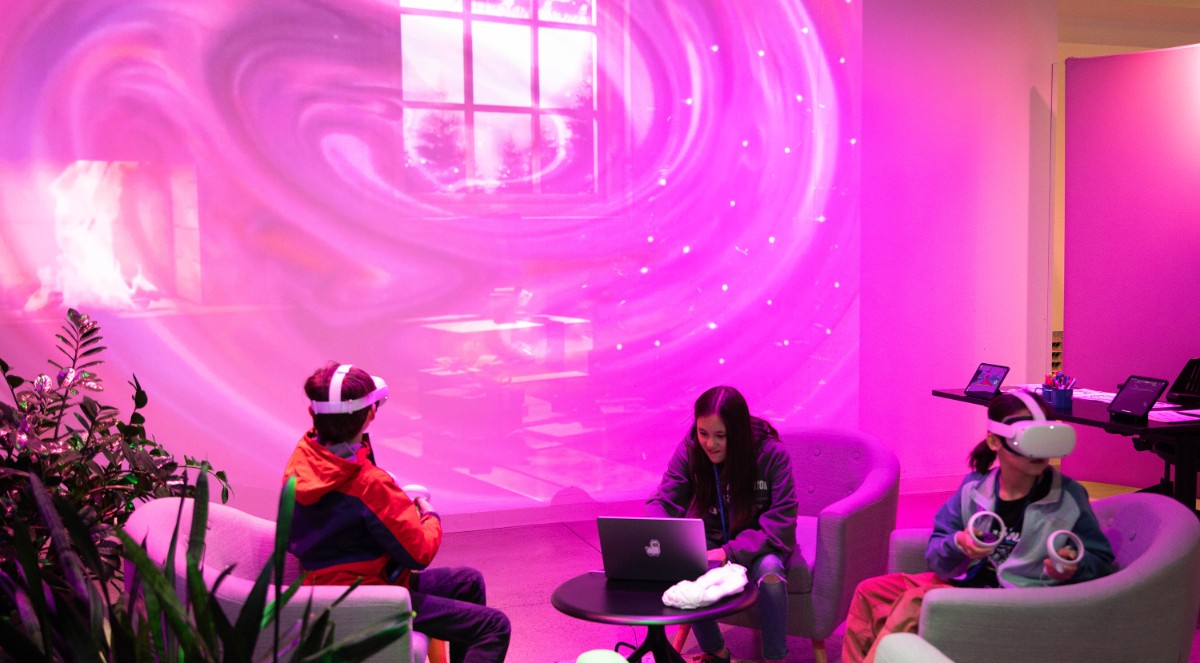By Minh Le, Principal Instructional Designer
Imagining the Future of Education in the Post-pandemic World
It is hard to believe that the global COVID-19 pandemic that upended the entire world is already three years behind us. The legacy it left behind, including the flexible, hybrid work mode and profound transformations in education, still continues. Undeniably the pandemic has reshaped learning forever, propelled a seismic shift toward online education, and exposed the fragility of traditional teaching methods.
This disruption raised profound questions for me as an instructional designer: How far could digital technology, especially emerging technologies like Virtual Reality (VR) and Augmented Reality (AR) transform and redefine the way we learn if we allow them to? What possibilities lie ahead if we embrace these tools not just as novelties, but as mediums for fundamental educational change? What happens when education transcends physical boundaries to embrace immersive, digital realms?
I started the Immersive Learning Initiative at Teachers College in September 2022 to explore these questions, offering not just opportunities to experiment with a new teaching medium and tool, but also a critical reimagining of its potentials and impact on the future education landscape. What started as my passion project, an inquiry to satiate my intellectual curiosity, has evolved into a movement challenging educators to rethink how technology can shape—and even transform—our experience of learning.
The Beginning: Planting the Seeds of Immersive Learning
The buzz around virtual reality (VR) and the metaverse has been fueled by bold promises of revolutionizing how we engage with digital environments personally and professionally. Much of the discourse has been dominated by tech giants with a focus on maximizing profitability, leaving critical questions about educational value, data privacy, and equitable access largely unanswered. Thus, it has become more critical than ever before for educational professionals to have a seat at the table in shaping these technologies that could potentially reshape the future of learning.
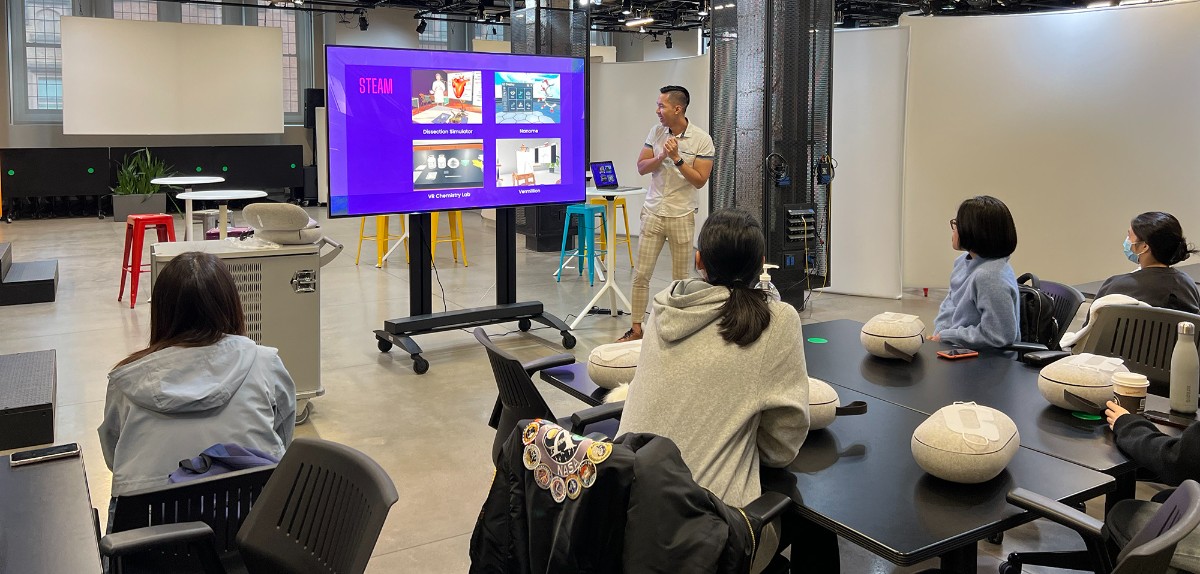
Participants have first-hand experience with VR technology at DFI’s Immersive Experience Club (Photo: Brianne Minaudo)
Consulting with Dr. Joey Lee, Director of TC’s Games Research Lab and a faculty expert in game design and immersive technologies, the initiative embraced a more thoughtful and critical approach, moving beyond the hype to focus on evaluating meaningful, practical applications of immersive technology for education. The program started with a small but significant program: the Immersive Experience Club. This workshop series allowed participants to get first-hand experience with VR technology in an interactive "book club" format, where participants tried out various VR applications and discussed their educational potential.
From the outset, the goal was clear: create a safe, fun, and inclusive space for TC community members to experiment, reflect, and innovate with immersive technologies. However, launching and running the initiative sustainably has not been an easy feat. From developing policies and protocols for safe and ethical use to addressing logistical hurdles like headset maintenance and application deployment, every step required innovative problem-solving in collaboration with various stakeholders in and out of the college, such as TC Information Technology (TCIT), Office of Access and Services For Individuals With Disabilities (OASID), Office of the General Counsel (OGC), and external vendors. Data privacy and accessibility concerns remain significant barriers to widespread adoption, as does the lack of efficient tools for managing VR devices and applications.
The Evolution: Exploring, Integrating, and Expanding
Despite the challenges, the initiative has succeeded in creating a streamlined process that lowers the barriers to entry for faculty and departments, paving the way for immersive technology to integrate seamlessly into teaching and other programming. Over the past three years, the program has evolved in response to growing interest from the TC community. Initially a way to "test the waters," the Immersive Experience Club has become a gateway for deeper collaborations. Faculty have requested customized sessions to integrate VR into their courses, such as Prof. Lee’s Virtual Reality, Augmented Reality, Mixed Reality and Games as Learning Tools, Prof. Li’s Exploration of Computational Problem Spaces and Representations, and Prof. Nguyen's Technology-based Language Teaching and Material Design.
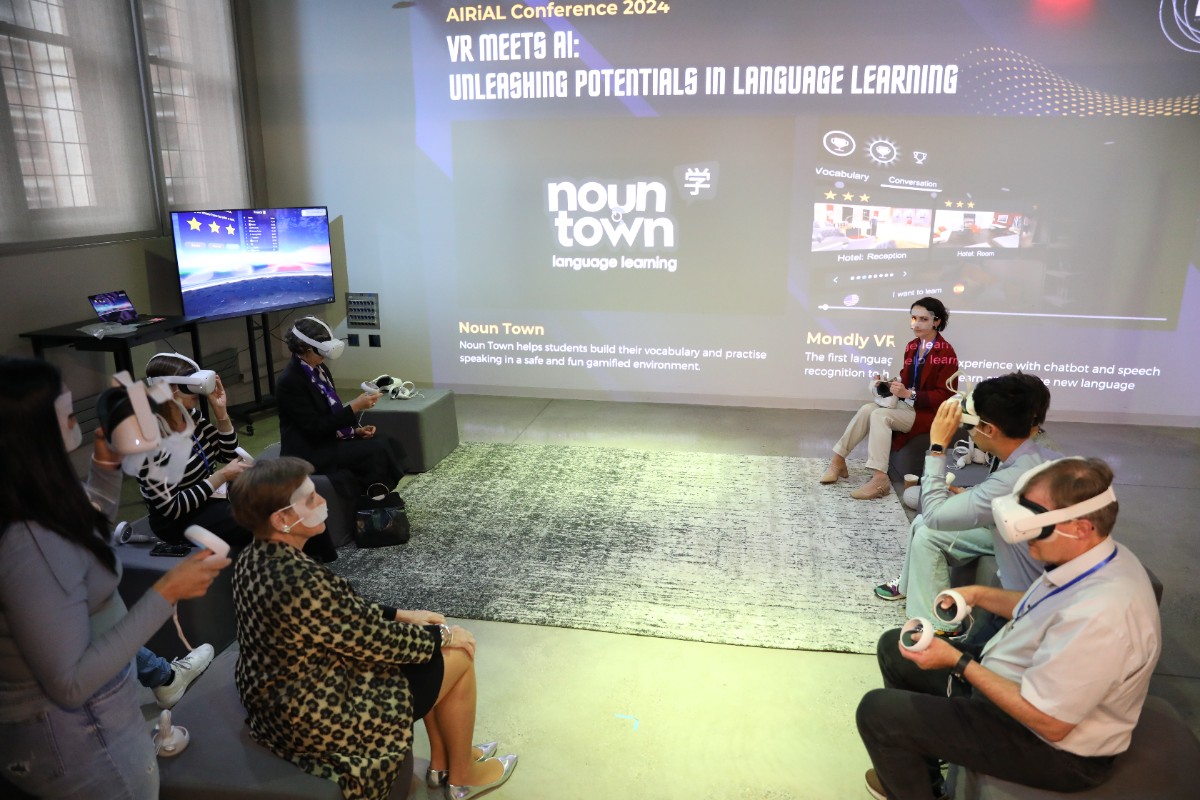
Participants try out VR applications for language learning at AIRiAL Conference 2024 (Photo: Anna Charles)
One notable partnership has been with Prof. Erik Voss, Assistant Professor of Applied Linguistics and TESOL, to demonstrate the synergy of AI and VR technology to elevate language learning at the annual Artificial Intelligence Research in Applied Linguistics (AIRiAL) Conference every Fall. Another novel and impactful collaboration with the International Lab for Research and Leadership in Interfaith Collaboration and Coexistence involved using virtual reality technology to take hundreds of religious leaders on an immersive Religious Architecture Tour. The journey showcased magnificent religious architecture and landscapes from around the world, while sharing heartwarming stories of interfaith unity and cooperation and fostering a profound sense of cross-cultural understanding and appreciation.
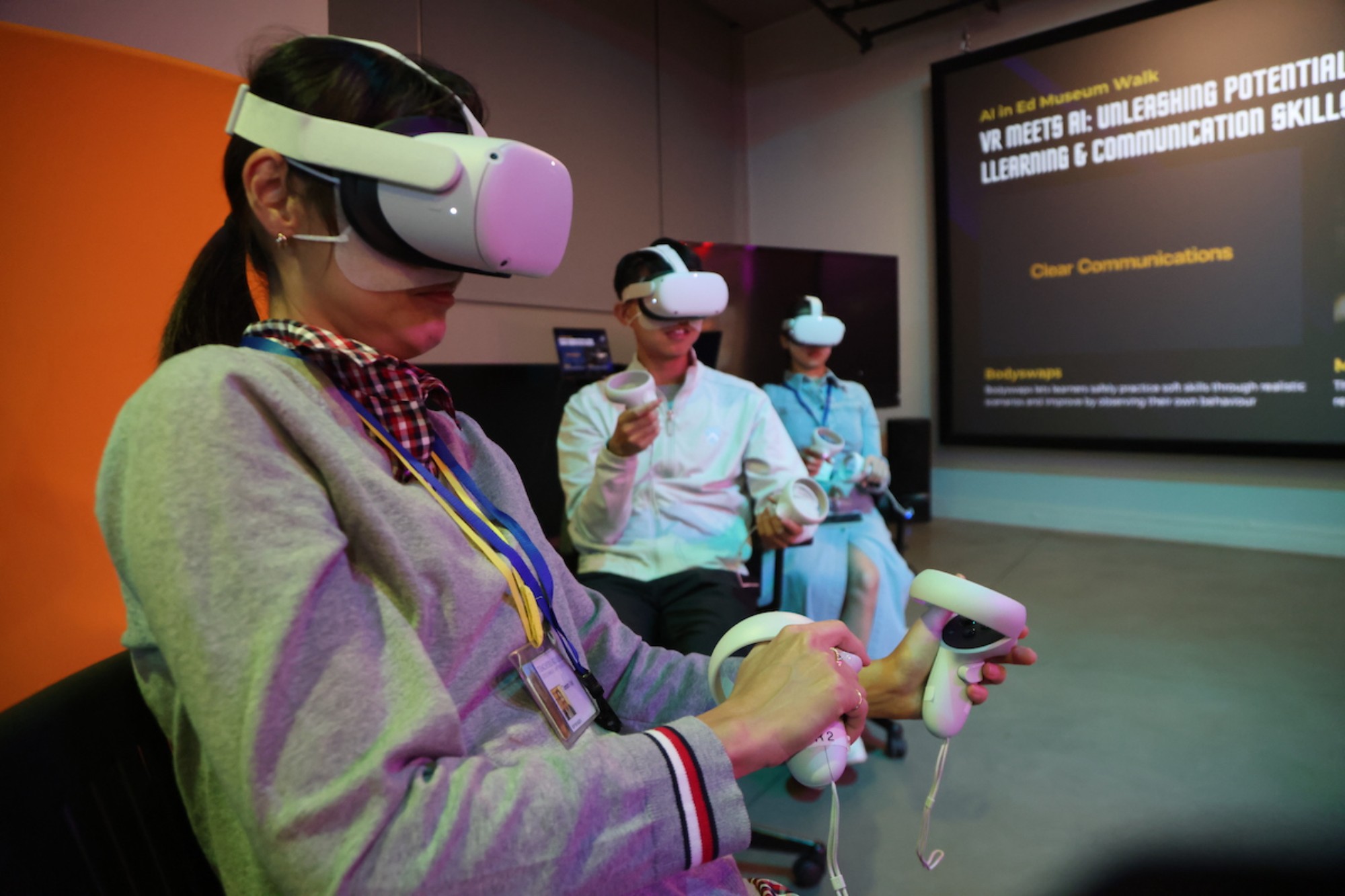
Participants enthusiastically experienced VR for communication skills development at TC’s First (Re)Unites (Photo: Bruce Gilbert)
These on-demand sessions and partnerships have become the backbone of the initiative, extending its impact far beyond TC. Faculty not only at TC but also from other Columbia schools have booked these sessions for their courses. Programs like Teachers Supporting Teachers at DFI offer opportunities for K-12 teachers and their students across New York City to experience the immersive technology firsthand, while a partnership with the Office of Global Engagement has enabled the initiative to reach educators worldwide.
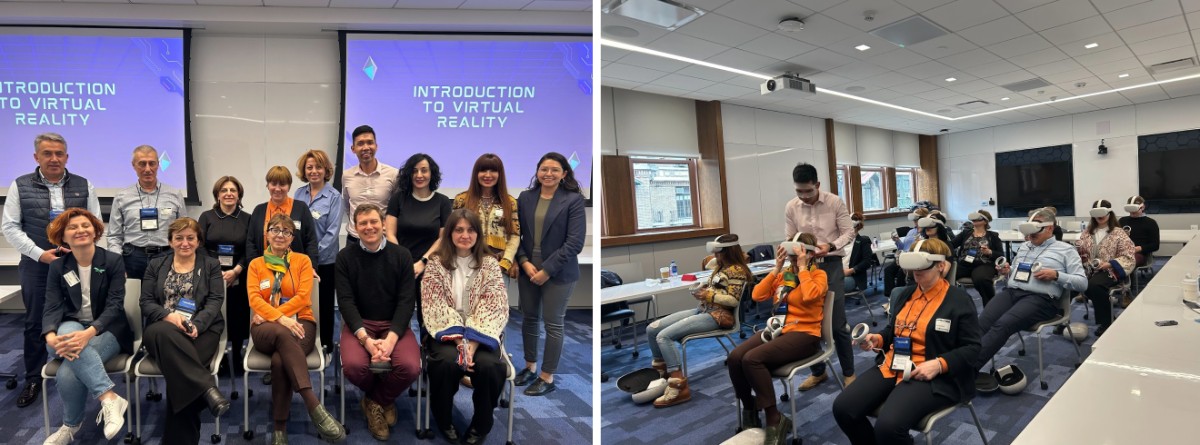
The workshop is hosted in partnership with Office of Global Engagement for the delegates of the U.S State Department-sponsored Exchange Program “Georgia Teachers of Tomorrow” (Photo: Jazmin Guardado)
What’s Next: Scaling Impact and Driving Innovation
Looking ahead, the Immersive Learning Initiative is focused on scaling its impact through further enhancing internal processes and partnerships, and expanding resources to support the integration of the technology into teaching, research, and new learning experience creation.
We started with A Teacher's Guide for VR Workshop Facilitation, which provides essential resources to help educators design and facilitate a workshop to introduce VR technology to your students. And now, the recently launched Menu of VR Experiences offers a curated collection of VR experiences, organized by discipline, topic, and pedagogical practices like virtual field trips and digital galleries. It aims to empower educators to envision how VR can enhance their teaching and streamline the planning process for on-demand workshops. Not only does the menu alleviate the hurdles of planning VR instruction, but it also underscores the initiative's mission: making immersive technology accessible, intentional, and impactful for educators and students alike.
Last but not least, the initiative also aims to address missed opportunities, such as developing structured support for research projects and fostering international collaboration and knowledge exchange by hosting guest lecturers and visiting scholars/researchers from other institutions at DFI.
AI Transparency Statement
As an effort to promote AI awareness and transparency, this statement discloses how I used AI in writing this article. I used ChatGPT to assist in brainstorming the article's direction and outline, drafting initial iteration, and proofreading to ensure clarity and cohesion. All AI contributions were always guided, verified, and refined by me at each stage.
